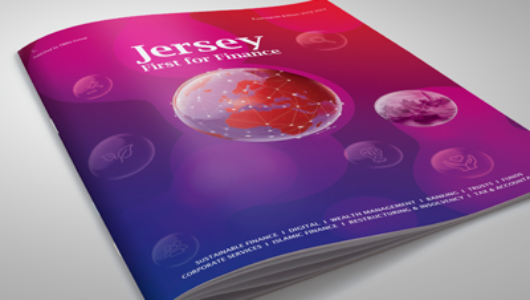It is only if we promote a socially responsible agenda in an international context that as a jurisdiction we will remain relevant for our stakeholders. Jersey has deliberately positioned itself for a number of years as a globally responsible and cooperative international finance centre. By pursuing this strategy and promoting the Island in this way we have been able to both protect and enhance the finance industry offering in the Island.
Tax neutrality is one of the pillars of the finance industry in the Island. Protecting this platform has ensured that the industry remains sustainable. It is fair to say that as society has evolved we have adapted the Island’s proposition to reflect changing attitudes – especially toward tax planning and mitigation.
The industry emphasis has changed from being purely focused on tax mitigation to the wider benefits that these structures offer such as wealth protection and succession planning.
In pursuing this strategy of being globally cooperative, the Island has actively engaged, in particular, with the OECD, ECOFIN and specific jurisdictions where concerns have been raised about our tax system – both the UK and France in recent memory. Where necessary we have introduced changes.
As part of this strategic positioning the Island introduced extensive financial regulation for fiduciary providers in the late 90s and since then has evolved a culture of strong regulation and adherence to international standards.
Regulation does however come at a cost. As a result of the regulatory cost we have, by necessity, evolved an industry traditionally based on high volumes of low cost, low value, tax mitigation structures to one focused on much higher value structures.
We now exchange tax information internationally and more recently have introduced legislation which requires substance commensurate with the activities being operated through Jersey companies (and soon to be extended to partnerships).
In this area the regulatory requirements are often very complementary to the tax requirements. Using a very simple example, from a corporate tax perspective we are always seeking to be able to evidence and demonstrate that management and control and key functions are being undertaken in the Island. The regulator is also seeking this and so the regulatory requirements promote the same objective.
As a result of having this strong culture of regulatory compliance the implementation of the economic substance legislation in Jersey – whilst not without some issues – was relatively painless for the fiduciary industry in the Island.
The regulator – the Jersey Financial Services Commission (JFSC) – discourages the use of the Island for wholly artificial or very aggressive tax planning arrangements and has been very clear on their stance in this area.
The tone of my aforementioned comments could be read as being complacent and self-serving, though this is far from the case. One of the strengths of the Island has been our adaptability. This will determine how successful and strong the industry is in future.
One of the trends I have seen evolving is an increasing focus on international migration. We have seen as an Island, an increasing number of key individuals move to Jersey over the years which has increased the substance and presence of businesses operating in the Island.
Often, when we consider the ESG tax agenda for large jurisdictions, we talk about incentives to influence behaviour such as carbon tax credits. The Island offers a number of tax neutral structures for non residents and does not levy tax on non residents. In the context of incentives these are not therefore appropriate for our tax system.
We are a low tax jurisdiction and the ESG agenda for us means behaving in a socially responsible way.
Tax neutrality means that we do not levy Jersey tax on non residents and do not apply withholding taxes on payments. We do not levy capital taxes, there are no capital gains wealth, gift or inheritance taxes. The principal advantage for non residents using the Island is that they only suffer tax in their home jurisdiction and there is no duality of taxation.
The Island is keen to attract high net worth individuals and high value low footprint businesses (such as investment managers) to move to the Island and offers very favourable tax incentives. The increase in real substance has been an increasing trend for the last 20 years.
The tax environment is very favourable for these individuals and businesses but the reality is that the technological improvements and ease of global travel has meant that businesses and key individuals can base themselves anywhere, which was brought into sharp focus during the COVID-19 pandemic.
The general rate of corporate tax in the Island is 0%. The personal tax rate for residents is 20% but there are more beneficial lower rates for incoming high net worth individuals.
Certain regulated companies such as banks, trust companies and investment managers regulated in the Island and operating through a permanent establishment are subject to tax at the rate of 10%. Certain other companies, for example, utilities, large retailers and Jersey real property developers operating in the Island are also subject to tax at the rate of 20%.
The Island offers a myriad of different structures, including:
- Companies – a number of different types, too many to list;
- Trusts
- Partnerships – including, general, limited, limited liability
and separate limited; and - Foundations.
As an international finance centre with low tax rates we will continue to attract scrutiny from other jurisdictions and stakeholders will hold us accountable for our behaviour. The finance industry has evolved significantly in the last 30 years and the industry today is largely unrecognisable from the one which existed then. The only way to protect ourselves in future is to remain adaptable and consistent.

